Medical Oncology
- Home
- Medical Oncology
Medical Oncology
Podiatry specialty focuses on diagnosing, and treating conditions affecting the feet, ankles, and lower extremities. It addresses issues like bunions (also called: hallux valgus, hallux abducto valgus), flatfoot, diabetic foot complications, and sports injuries, using treatments ranging from orthotics and physical therapy to surgeries for deformities and injuries. Medkins Healthcare helps you find the best podiatrists in India, provides guidance to the right hospital or clinic and doctor, supports you throughout your treatment journey, and ensures safety and success.

Diseases Treated by Medical Oncology
Breast Cancer – Malignant tumor originating from breast tissue, which may present as a lump or abnormality on mammography. Types include ductal carcinoma in situ (DCIS), invasive ductal carcinoma (IDC), and invasive lobular carcinoma.
Lung Cancer – Malignant growths in the lungs, commonly categorized as non-small cell lung cancer (NSCLC) and small cell lung cancer (SCLC). Symptoms include cough, chest pain, and weight loss.
Colorectal Cancer – Cancer that starts in the colon or rectum, often presenting as changes in bowel habits, rectal bleeding, or abdominal pain. Includes adenocarcinoma and less common types like carcinoid tumors.
Prostate Cancer – Malignant growth in the prostate gland, which may present with symptoms such as urinary problems, pelvic pain, or erectile dysfunction.
Ovarian Cancer – Cancer arising from the ovaries, often presenting with abdominal bloating, pelvic pain, and changes in bowel habits. Types include epithelial ovarian cancer, germ cell tumors, and stromal tumors.
Endometrial Cancer – Malignant tumors originating from the lining of the uterus (endometrium). Symptoms may include abnormal vaginal bleeding and pelvic pain.
Pancreatic Cancer – Malignancy in the pancreas, which often presents with jaundice, weight loss, and abdominal pain. Includes pancreatic ductal adenocarcinoma and other types.
Hematologic Malignancies – Cancers of the blood and bone marrow, including:
– Leukemia: Blood cancer characterized by uncontrolled proliferation of white blood cells. Types include acute lymphoblastic leukemia (ALL), acute myeloid leukemia (AML), chronic lymphocytic leukemia (CLL), and chronic myeloid leukemia (CML).
– Lymphoma: Cancer of the lymphatic system, including Hodgkin lymphoma and non-Hodgkin lymphoma.
– Myeloma: Malignancy of plasma cells in the bone marrow, known as multiple myeloma.Kidney Cancer – Malignant tumors originating in the kidneys, such as renal cell carcinoma (RCC) and transitional cell carcinoma. Symptoms may include blood in urine, flank pain, and a mass.
Bladder Cancer – Cancer of the bladder lining, often presenting with symptoms like blood in urine, frequent urination, and pain during urination.
Head and Neck Cancer – Malignant tumors occurring in the oral cavity, pharynx, larynx, or sinuses. Includes squamous cell carcinoma and other less common types.
Melanoma – Malignant tumors originating from melanocytes, the pigment-producing cells in the skin. Can also occur in other parts of the body like the eye.
Soft Tissue Sarcomas – Malignant tumors originating in soft tissues like muscles, fat, nerves, or blood vessels. Includes types like leiomyosarcoma, liposarcoma, and synovial sarcoma.
Brain and Central Nervous System (CNS) Tumors – Tumors occurring in the brain or spinal cord, including gliomas, meningiomas, and medulloblastomas.
Testicular Cancer – Cancer originating in the testicles, often presenting as a lump or swelling in the scrotum. Includes seminomas and non-seminomas.
Conditions Treated by Medical Oncology
- Stage and Subtype of Cancer: Determines treatment approach based on cancer type, grade, and extent of spread.
- Cancer Relapse or Recurrence: Management of cancers that return after initial treatment.
- Cancer Metastasis: Treatment for cancers that have spread from the primary site to other parts of the body.
- Side Effects Management: Addressing symptoms and side effects of cancer treatments, such as nausea, pain, and fatigue.
- Palliative Care: Providing relief from symptoms and improving quality of life for patients with advanced cancer.
- Cancer Prevention and Surveillance: Monitoring individuals at high risk for cancer and providing preventive measures.
Procedures in Medical Oncology
Chemotherapy – Use of cytotoxic drugs to kill or inhibit the growth of cancer cells. Administered orally, intravenously, or via other routes depending on cancer type and treatment protocol.
Targeted Therapy – Drugs designed to specifically target cancer cells by interfering with molecular pathways involved in tumor growth. Includes tyrosine kinase inhibitors, monoclonal antibodies, and other agents.
Immunotherapy – Treatments that stimulate the body’s immune system to recognize and destroy cancer cells. Includes checkpoint inhibitors, CAR T-cell therapy, and cancer vaccines.
Hormone Therapy – Use of hormones or hormone-blocking agents to treat cancers that are hormone-sensitive, such as breast cancer or prostate cancer.
Radiation Therapy – Use of high-energy radiation to kill cancer cells or shrink tumors. Delivered externally (external beam radiation) or internally (brachytherapy).
Bone Marrow Biopsy – Procedure to obtain a sample of bone marrow for examination to diagnose hematologic cancers or assess disease status.
Lumbar Puncture – Procedure to collect cerebrospinal fluid for diagnosis of CNS involvement in cancers or for administration of chemotherapy.
Genetic Testing – Testing of cancer cells or patient’s genes to identify specific mutations or genetic alterations that can guide targeted therapy.
Clinical Trials – Participation in research studies to test new treatments or protocols that may offer benefits beyond standard therapies.
Palliative Care – Focused on providing relief from symptoms, pain, and stress of serious illness, aiming to improve quality of life.
Our Focused Specialties
Multi-Specialty Care Hub
Discover India’s diverse multi-specialty health departments and treatments. We’re dedicated to ensuring a healthier tomorrow, navigating the dynamic realm of Indian healthcare. Our wide range of specialties includes top-notch hospitals, selected based on quality and healthcare facilities. Join us for a personalized journey to optimal health and wellness.

Gastro-intestine
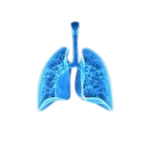
Pulmonology

Ophthalmology
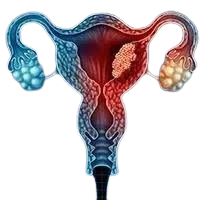
Gynaecology
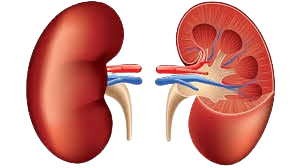
Nephrology
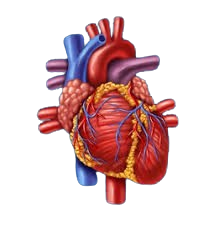
Cardiac
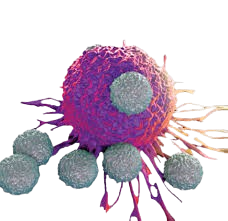
Hematology

Neurology

Bone & Joint
Looking for an expert !
Our Healthcare is home to some of the eminent doctors in the world

Dr Rajesh Sharma

Dr Sandeep Vaishya

Dr Sandeep Vaishya

Dr Rajesh Sharma

Dr Rajesh Sharma

Dr Sandeep Vaishya
Easy Access Links
- International Patients
- We & Why
- Core Specialites
- Common Procedures
- Hospitals
- Doctors
- Treatment Locations
- Way To Healing
- Wise to ask before
- Comfort and Satisfaction
